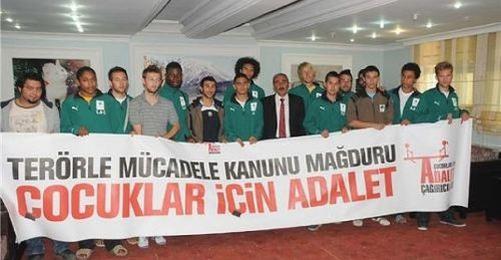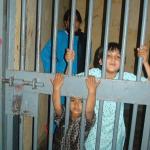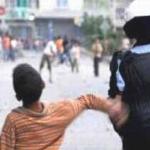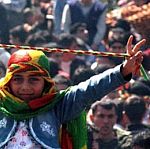The Diyarbakır Special Authority High Criminal Court sentenced a 15-year old girl from Batman in south-eastern Turkey to 8 years imprisonment in the scope of the Anti-Terror Act. Batman Bar Association Chair Yusuf Tanrıseven and Eshat Aktaş, Coordinator of the Children's Right Centre of the Diyarbakır Bar Association, evaluated the court decision and urged the government to enact the suspended draft laws regarding the prosecution of children as soon as possible.
Prison sentence in first hearing
In the first hearing held on 26 January, 15-year old girl B.S. was sentenced to a total of 13.5 years imprisonment. The sentence was reduced to 7 years 9 month because of the young age of the defendant. The girl stood accused of "committing crimes on behalf of an illegal organization", "meetings and demonstrations in opposition to the law" and "spreading propaganda for an illegal organization".
The girl was taken into custody in the course of a demonstration in Batman on 9 October 2009. She did not accept the charges brought up against her in the hearing. 15-year old B.S. said that was beaten by the police and forced to accept the accusations. However, she stated that she did not know the meaning of the term "propaganda".
"Almost 1,300 children tried or in detention"
In an interview with bianet, Aktaş from Diyarbakır explained that almost 1300 children were detained or tried under the Anti-Terror Act (TMY) in the pre-dominantly Kurdish region of eastern and south-eastern Anatolia in 2009.
"Under the rule of law, the main criteria are objective regardless of persons, incidents and geography. Whereas the implementation to the contrary varies in respect to the incident, the person and the geography".
The government had suspended the draft law regarding children to be tried before juvenile courts. Tanrıseven and Aktaş urged the government to enact the stalled draft law as soon as possible. Otherwise, hundreds of children are likely to experience the same sort of victimization.
Stalled amendments not sufficient
An analysis carried out by the Justice for Children Group revealed that the foreseen amendments are not sufficient to protect children "victimized by the TMY". The initiative pointed out the following issues when the draft law was brought to the agenda:
Blocking increase of punishments for children: A 90 months prison sentence for children can only reduced by 20 months according to the amendments. There are children who received prison sentences of up to 190 months. This clearly reveals that the proposed amendment of a 20-months mitigation does not solve the problem.
Prosecution of 16-18-year old children at juvenile courts: It is important to try all children at juvenile high criminal courts, regardless of age. Judges at juvenile criminal courts will not be able to take any different decisions from the ones currently made, if the referring lay articles will not be amended.
Suspension of sentences, redemption, postponed disclosure of the verdict and alternative sanctions: It is important to allow alternative sanctions for the age group of 16-18-year olds. However, in order to be able to implement an alternative sanction like postponement for instance, the sentence must not be longer than three years. Therefore, the article allowing sentences of more than three years for children needs to be amended.
According to the Justice for Children Group, six articles of the TMY and one article each of the Turkish Criminal Code and the Law on Meetings and Demonstrations need to be amended for the protection of children. (TK/VK)



















